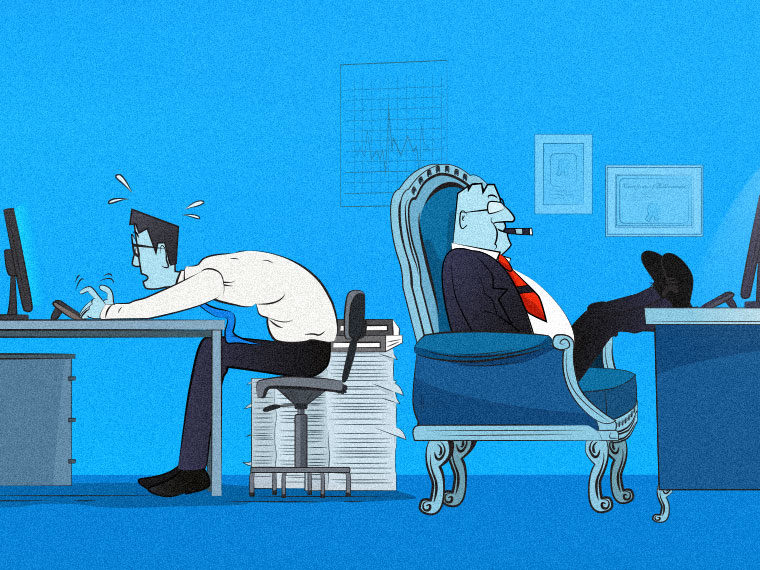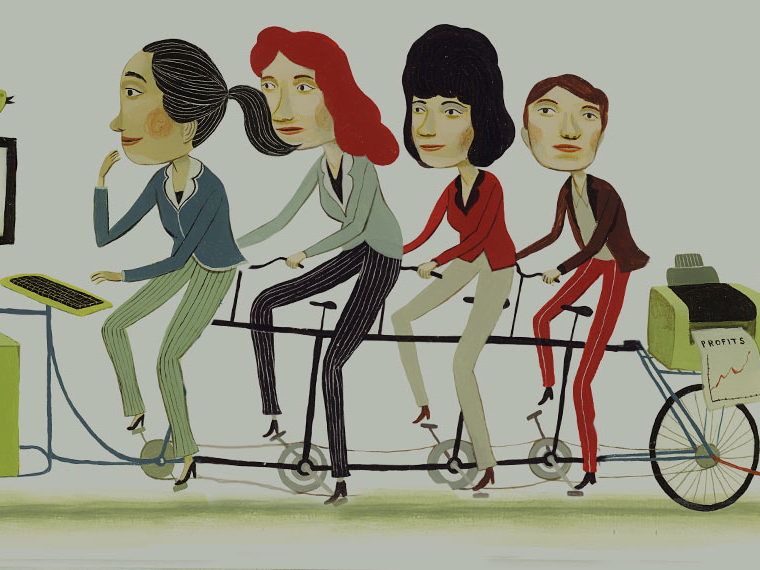Research might give pause to corporate boards changing compensation models
Corporations often include stock options in management compensation packages to encourage in-house decision-makers to think and act like shareholders. Executives naturally might prioritize avoiding career-ending mistakes, but shareholders prize growth, which requires taking some chances. A CEO paid in part with stock options, which rise in value with the share price, is more likely to take bold risks that could lead to big share price gains than a leader whose pay is the same with safer strategies, according to research in the field.
Of course, not all risks are good ones, and options-compensated leaders fail, too. A better understanding of exactly what kinds of risks options encourage might help guide these organizations toward incentivizing better bets.
A paper by UCLA Anderson’s David Aboody and Tel Aviv University’s Shai Levi and Dan Weiss offers some details. When options packages shrink, managers reduce their companies’ operating leverage, a form of risk, the findings suggest. The paper is forthcoming in the Review of Accounting Studies.
Opt In to the Review Monthly Email Update.
The change effectively turns these organizations into more conservative investments. Operating leverage, a ratio of a company’s fixed versus variable costs, falls as the firm’s income becomes more predictable, or less risky. Corporations in the study experienced lower earnings variability, lower stock return volatility and a marginal decline in profitability growth when they significantly reduced option-based compensation.
The researchers analyzed operating leverage at 567 firms before and after a 2006 change in accounting rules required them to start expensing option-based compensation. Many corporations cut back on executive options to lessen the earnings and potential share price hits that the rule, known as FAS 123R, would create.
At companies that significantly reduced option compensation, management reduced operating leverage by de-emphasizing fixed costs and relying more on variable costs, according to the findings. Firms with little or no reduction in option-based compensation made only insignificant changes to this mix of costs. On average, the percentage of variable costs following the rule change increased to 92.3 percent from 87 percent, the study states.
Fixed costs, such as the loan payments on factory equipment, are riskier because they must be met regardless of the company’s sales volume. A $1 million piece of equipment to automate a production line is a liability if sales don’t reach forecasts. Alternatively, wages (a variable cost) can rise and fall as the company hires and fires employees according to sales demand. The fixed cost investment often carries the potential for bigger profit gains long term. After the initial investment, the company keeps more on each sale without workers.
Firms that significantly reduced options-based compensation lowered fixed costs and increased variable costs in sales, general and administrative areas, and research and design, the study finds. They did not raise or reduce overall costs in either area.
The authors note that their findings apply only to an event that decreases option-based compensation. They do not address how increasing options-based compensation might affect the corporate cost structure.
Boards of directors, mulling a change in executive compensation that would eliminate or reduce the role of stock options, might want to consider the implications of a management team with a reduced appetite for risk.
Featured Faculty
-
David Aboody
Professor Emeritus of Accounting
About the Research
Aboody, D., Levi, S., & Weiss, D. (in press). Managerial incentives, options, and cost-structure choices. Review of Accounting Studies. [Abstract]






